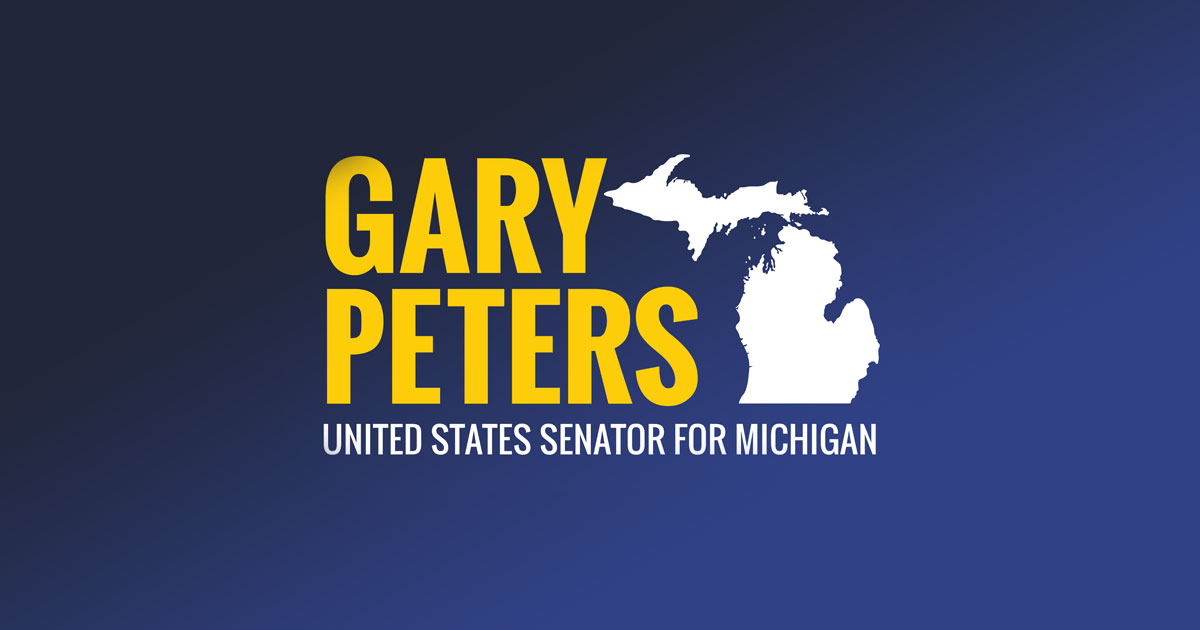Source: United States Senator for Michigan Gary Peters
WASHINGTON, D.C. – U.S. Senator Gary Peters (MI), Chairman of the Homeland Security and Governmental Affairs Committee, introduced bipartisan legislation to help safeguard our nation’s critical infrastructure networks against cybersecurity threats. The bill would require the Cybersecurity and Infrastructure Security Agency (CISA) to ensure they can better identify and mitigate threats to Industrial Control Systems – the operational technology involved in operating the function of critical infrastructure networks like pipelines, and water and electric utilities. The bill is the Senate companion to legislation that has already passed the House unanimously. Peters was joined by U.S. Senators Rob Portman (R-OH), Mark Warner (D-VA) and Marco Rubio (R-FL) to introduce the bill.
“As foreign adversaries and the criminal organizations they harbor continue to target our critical infrastructure systems, it is essential we work to protect these networks from attacks that can lead to significant harm to the American people,” said Senator Peters. “This bipartisan, commonsense bill will help shore up the defenses of critical infrastructure networks and address vulnerabilities in products and technologies that help operate them.”
Critical infrastructure companies in the United States have seen a stark rise in cyber-attacks. Earlier this year, hackers breached the network of a major oil pipeline forcing the company to shut down over 5,500 miles of pipeline – leading to increased prices and gas shortage for communities across the East Coast. Prior to that, malicious cyber actors took control of a Florida wastewater treatment plant’s computer system that allowed hackers to temporarily tamper with Americans’ water supply. These attacks, and others, highlighted the urgent need to secure critical infrastructure systems from foreign adversaries and criminal organizations who are relentless in their pursuit to exploit vulnerabilities and infiltrate networks.
The DHS Industrial Control Systems Capabilities Enhancement Act directs CISA to lead federal efforts to better identify and respond to threats against Industrial Control Systems and the critical infrastructure networks they help operate. The legislation also requires CISA to provide technical assistance to public and private sector entities on how they can work to identify and mitigate vulnerabilities in their operational technology systems. The bill would also ensure CISA shares information on cyber threats with users of Industrial Control Systems and provides a briefing to Congress on its ability to protect these critical systems. Finally, the legislation would require the Government Accountability Office to produce a report on its implementation and CISA’s capabilities to fulfill this mandate.
As Chairman of the Homeland Security and Governmental Affairs Committee, Peters has led efforts to bolster our nation’s cybersecurity defenses. Peters convened a hearing with the Chief Executive Officer of Colonial Pipeline to examine a recent ransomware attack against the company. A provision authored by Peters to increase our government’s ability to quickly respond to cyber-attacks passed the Senate as part of a larger package to boost American competitiveness on the global stage. Peters is also conducting an investigation into the role cryptocurrencies continue to play in emboldening and incentivizing cybercriminals to commit ransomware attacks. In April, the Senate also passed his provision to help protect our nation’s public water infrastructure technology systems, following recent cyber-attacks on water utilities. Two pieces of legislation authored by Peters to enhance cybersecurity guidance for K-12 educational institutions across the country and secure federal information technology supply chains against cybersecurity threats and other vulnerabilities have advanced in the Senate.
###
